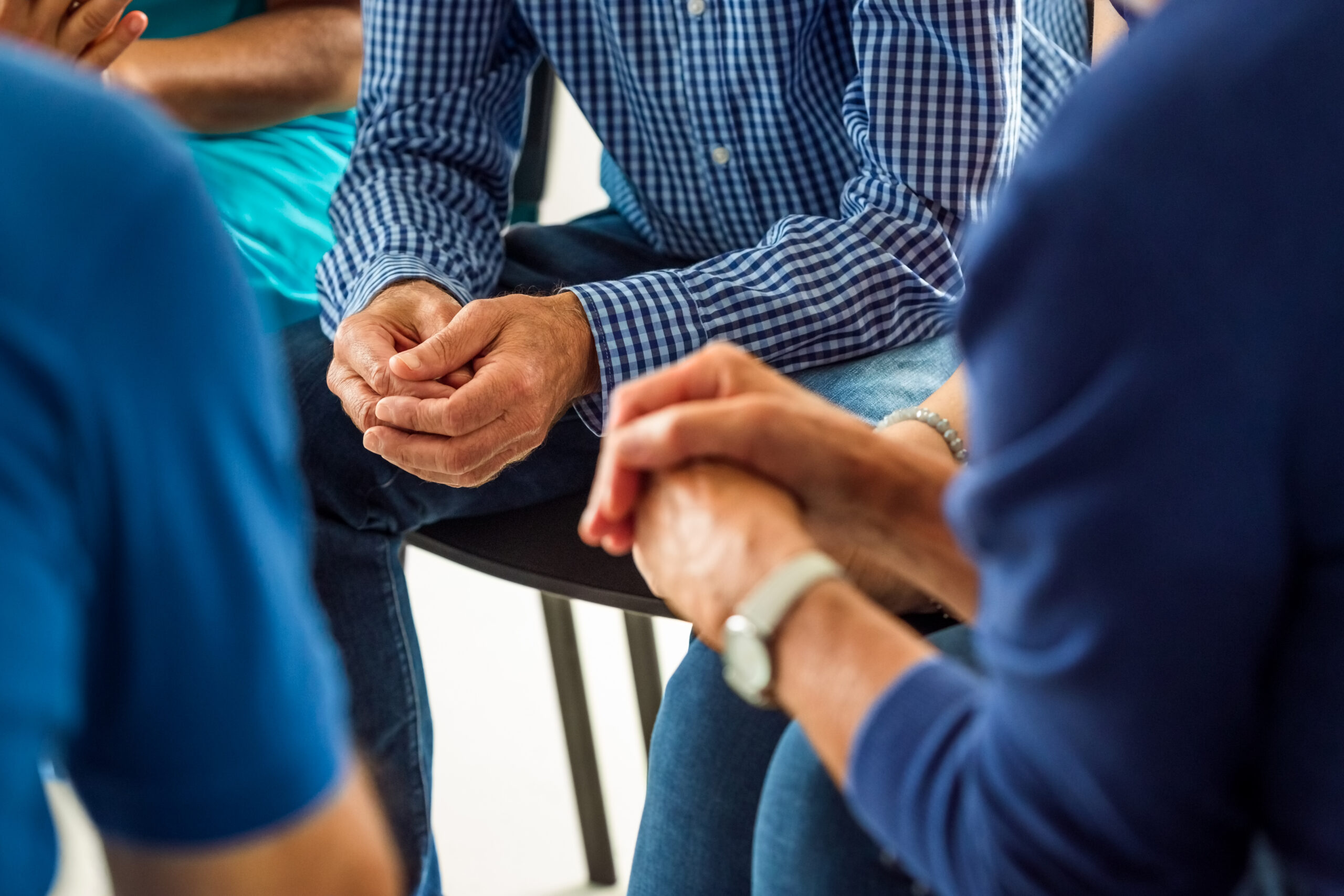For many, these therapies are the first opportunity to explore not just what they are doing, but why they have been engaging in this behavior.
In therapy, these underlying patterns come into focus. Someone may realize that they have learned to emotionally shut down because it felt safer than being vulnerable. They may also discover that turning to substances was a way to manage anxiety they never knew how to name.
Therapy helps untangle these connections between life experiences, emotional reactions, and the behaviors that follow.
As you work through the root causes, you are also building emotional resilience, self-awareness, and practical strategies to support long-term healing.
This kind of therapy does more than help you get sober. It helps you stay steady, rebuild confidence, and create a life that actually feels worth living.
At New Life Recovery, we use addiction treatment therapies that are backed by research and proven to help people heal from both substance use and the mental health challenges that often coincide with it.
Some evidence-based addiction treatment therapies we utilize include:
In practice, let’s say you’ve had a hard day. Your brain says, “I can’t deal with this, I need a drink.” In a CBT session, you’d stop and examine that thought to look into:
Then, you work with your therapist to create new thought pathways.
CBT utilizes different modalities and processes to help participants in reframing harmful thoughts and experiences to find easier ways to cope with life’s stresses and difficulties.
Some of the most common tools are:
Where CBT focuses on thoughts and actions, DBT focuses on emotions – especially big, fast, or overwhelming ones. If your emotional reactions feel like they go from 0 to 100, DBT offers real ways to slow down and stay in control.
In DBT sessions, you don’t just talk about feelings, you learn how to manage them.
This includes specific tools like:
In EMDR sessions, you’ll choose a memory or experience that causes emotional distress. Then, when you are focusing on the memory, your therapist will guide you through sets of bilateral stimulation, either through eye movements or side-to-side tapping.
This back-and-forth movement helps both sides of your brain process the memory. You won’t forget what happened, but it will start to feel less raw, less vivid, and more like something in the past rather than something you’re still reliving.
EMDR can be a powerful tool to help participants achieve:
You and your therapist will explore past experiences and connect them to current struggles. You’ll identify your dominant “schemas,” understand how they formed, and recognize the ways they still affect your choices and relationships.
At New Life Recovery, our team builds customized treatment plans that reflect each person’s unique history, symptoms, goals, and support needs. Evidence-based addiction treatment therapies are a core part of this process, and we integrate them with intention and flexibility.
Group therapy and peer support are an essential part of our addiction treatment therapies.
At New Life Recovery, we don’t offer one-time sessions or rigid formats with our addiction treatment therapies. Instead, we provide daily group therapy that’s thoughtfully adjusted to fit your level of care, whether you’re in detox, residential treatment, or a step-down program.
Here’s how it works across different levels of care:
During detox, your body is still stabilizing, so your emotions may feel unpredictable. That’s why our groups at this stage are focused on comfort, support, and connection.
Group therapy at the detox level will have the following attributes:
Once you’ve moved beyond detox, group therapy becomes more structured and central to your day.
It will provide the following opportunities and organization:
As you prepare for life outside of treatment, our group therapy adapts to support real-world challenges.
In these programs, we focus on having:
Group sessions are one of the ways New Life Recovery incorporates addiction treatment therapies into real change, one day at a time.
New Life Recovery recognizes this, which is why we incorporate holistic addiction treatment therapies into your healing plan.
New Life Recovery offers multiple holistic options to include in your healing journey, including:
These wellness tools don’t just feel good in the moment – they also give you healthy routines to carry into life after treatment.
Many people find that recovery is about rediscovering who they are. Whether it means reconnecting with your values or learning how to manage daily responsibilities, these services help bring clarity, structure, and purpose into your life.
These services coupled with other addiction treatment therapies support your ability to function, thrive, and stay focused on what matters to you in recovery.
What makes New Life Recovery unique is how we blend these holistic practices into the structure of addiction treatment therapies and further care.
By combining traditional addiction treatment therapies with holistic care, we help you heal in a way that feels complete. Your body, mind, and spirit all get the support they need so that recovery feels more natural, sustainable, and connected to who you are.
Choosing the right addiction treatment therapies can feel overwhelming, especially when you’re just starting your recovery journey.
The truth is, there’s no single path that works for everyone. It’s important to find a program that offers options and knows how to tailor them to your personal goals, history, and needs.
Knowing which therapy is right for you isn’t something you have to figure out on your own. At New Life Recovery, every client begins with a full clinical assessment by trained professionals who take the time to understand your mental health, substance use history, medical needs, and personal goals.
This assessment helps guide your care in a way that’s thoughtful and precise, not rushed or generalized.
With this full picture, our clinical team can recommend the best mix of addiction treatment therapies for you. When therapy is based on your actual needs, you are more likely to stay engaged, feel supported, and make real progress.
Recovery isn’t linear. Some weeks, you may feel motivated and clear-headed, while other days, things feel overwhelming. That’s why the best therapies are designed to meet you where you are, with options that can shift as your needs change.
At New Life Recovery, we offer trauma-informed care, which means we recognize how trauma may be influencing your behavior, choices, and emotional state. Our team takes that into account with every therapy we provide, so you never feel pushed, judged, or rushed.
The right addiction treatment therapies will support you through every phase of healing. At New Life Recovery, we offer full-spectrum support from your first day through long-term follow-up.
This phase helps build new habits, emotional skills, and a strong foundation for lasting recovery.
When you’re ready to return home or step down from residential care, we help you transition into outpatient treatment. This ensures continuity, so your therapy doesn’t stop, it simply shifts to meet your new reality.
Whether you’re managing withdrawal, rebuilding your confidence, or preparing for life beyond treatment, you’ll have people who know your story and are ready to support your next step.
If you have been struggling with addiction, mental health challenges, or both, you do not have to face it alone. Exploring addiction treatment therapies can open the door to healing your mind, body, and sense of self. With the right support, real change is possible.
At New Life Recovery, our expert team works closely with you to create a personalized therapy plan. As your needs change, your care evolves. From individual counseling to holistic support and group sessions, we adjust each step to match your progress and goals.
You deserve a level of care that comprehensively addresses your entire being – not merely the surface-level presentation of your symptoms. True and lasting healing begins with access to the appropriate and tailored support system.
Don’t wait to begin this next phase of your life. At New Life Recovery, we hope to be the last step in your journey to healing with our quality, effective addiction treatment therapies.





